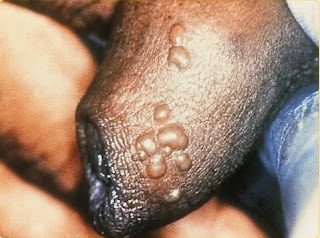When discussions about sexually transmitted infections (STIs/STDs) arise, certain names like Gonorrhea or Chlamydia often dominate the conversation. However, a highly prevalent and often asymptomatic infection, Trichomoniasis, frequently goes under-recognized despite its significant impact on public health. Caused by a microscopic parasite called Trichomonas vaginalis, this curable STD affects millions globally each year, highlighting the critical need for broader awareness.
Trichomoniasis primarily infects the genitourinary tract. In women, the most common site of infection is the lower genital tract, including the vagina and urethra. For men, the urethra is the most common site, though it can also affect the prostate and epididymis. The infection spreads through sexual contact, including vaginal, anal, or oral sex, even if ejaculation doesn't occur. It's crucial to understand that direct genital-to-genital contact is sufficient for transmission.
One of the main challenges with Trichomoniasis is its often silent nature. An estimated 70% of infected individuals may experience no symptoms at all, making it easy to unknowingly transmit the infection to partners. When symptoms do appear, they can vary. Women might experience vaginal discharge that is thin or frothy, yellow-green, and has a strong, unpleasant "fishy" odor. Other signs include itching, burning, redness, or soreness of the genitals, discomfort during urination, or pain during sexual intercourse. In men, symptoms are typically milder and rarer, potentially including itching or irritation inside the penis, discomfort during urination, or a discharge from the penis.
Diagnosis usually involves a healthcare provider taking a sample of vaginal fluid (for women) or urethral fluid/urine (for men) to examine under a microscope or perform a rapid test. The good news is that Trichomoniasis is highly curable with a single dose of antibiotics, typically metronidazole or tinidazole. It is vital that all sexual partners are treated simultaneously to prevent re-infection. Abstinence from sexual activity until both the infected person and their partners have completed treatment and symptoms have resolved is strongly recommended.
Untreated Trichomoniasis, despite being curable, can lead to various complications. It can increase the risk of acquiring or transmitting other STIs, including HIV, by causing genital inflammation. In pregnant women, it can lead to premature birth or low birth weight. Emphasizing safe sexual practices, including consistent and correct condom use, and undergoing regular STI screenings, particularly for sexually active individuals with new or multiple partners, are essential steps in preventing the spread of Trichomoniasis and safeguarding sexual health.




